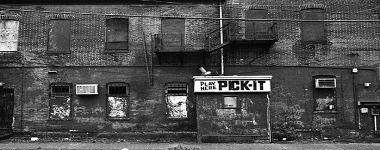The other day we offered some advice on what to do if you beat the odds of 1 in 292 million and actually won the Powerball jackpot. In the article, ‘If You Win The $1.3 Billion Powerball Jackpot What Should You Do (And Not Do)? (Video)‘, nine potential steps were provided along with a video describing what you should not do if you win.

But the question some ask and then answer is whether the lottery is actually a regressive tax on the nation’s poor?
The picture at the top of the article with the following caption explains why that may be the case…
In 2008, during the height of the recession, at least 22 of the 42 states with lotteries – including New York, New Jersey and Connecticut – set sales records.
From a Business Insider article back in 2012…
‘A week after America went crazy over the record Mega Millions jackpot, we want to reiterate the cruel truth about lotteries.
They are (1) regressive taxes on poor people, in that a ticket costs relatively more for a poor person than a rich person, and (2) punitive taxes on the poor and uneducated people who are the most avid buyers.
The people who can least afford it are throwing away on average 47 cents on the dollar every time they buy a ticket. And the government, which relies increasingly on the lottery for funding, goes out of its way to tell them it is a good idea.‘
Or this from MarketWatch on January 11, 2016…
‘…the revenue from the lottery is itself a type of tax often termed the “poor tax,” given that the lottery has a disproportionately negative impact on the poor. Typically, about 25% of the revenue goes to fund state programs, but according to Duke University economics professor Charles Clotfelter, author of “Selling Hope: State Lotteries in America,” there’s little evidence that this has any meaningful positive economic effect. Sadly, a whopping 15% of the revenue goes to financing the marketing of this gigantic economic drag. So the lottery system actually looks a lot more like a massive back-door tax scheme than anything else.‘













Leave A Comment